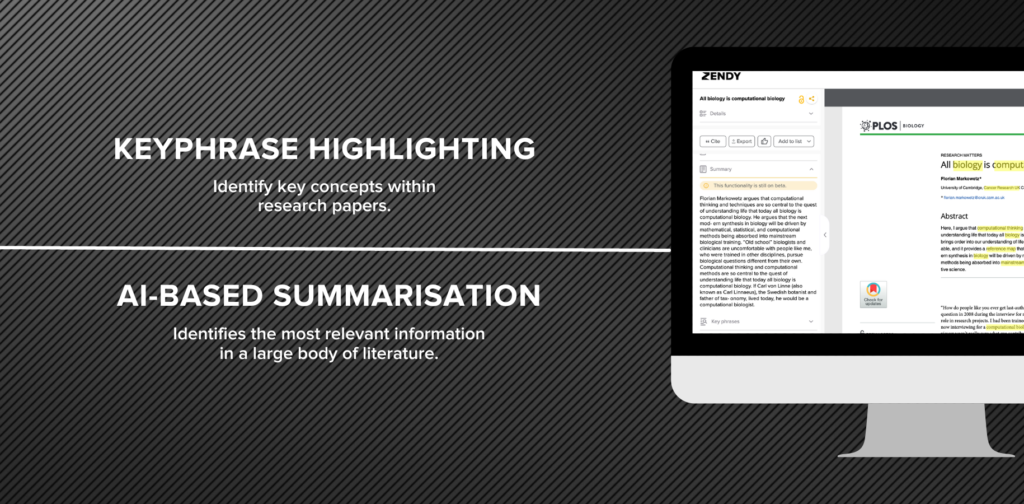
Research is the systematic study of knowledge or information on a specific topic of interest. The advancement of technology we see in our world today across the fields of engineering, medicine, architecture, agriculture and more is possible because of the contribution of researchers. If you have a natural curiosity for exploring new ideas, a career in research might be the perfect fit for you. However, getting started in this field can seem daunting, as there are various paths you can take.
In this blog, we will guide you through the steps you can take to start a career in the ever-growing field of research, from identifying your research topic to obtaining the necessary qualifications and exploring different job opportunities.
Educational Requirements to Have A Career in Research
A career in research is immensely beneficial for postgraduate and postdoctoral researchers. The beauty of having a career in research is all the different branches of subjects that are open to exploration; scientific research and a plethora of commercial and public sector research are great examples of the variety. To excel in research, the key quality is to have knowledge and dedication towards your chosen specialism; since research is a field heavily associated with academia and education, a strong educational background is also required, you must have a bachelor’s, master’s or doctoral degree.
A career in research can also be obtained with just a bachelor’s degree. As you progress within your education, you may also climb up the career ladder within research, most positions in the field of research require a master’s degree and experience with research coursework.
Potential Jobs and Industries To Pursue
Starting a career in research opens doors across various industries like educational institutions, government entities, industrial laboratories, corporates, hospitals, private companies and industries. These fields can advance their policies, technology and progress because of the research conducted to find solutions and further improve practices.
Listed below are the positions you can take on to build your career in research.
- Research Psychologist: As a researcher in psychology, you will be working across studies and research projects specialising in the study of human and animal behaviour. This area of study is usually beneficial to the health sector and experiments are typically conducted under the supervision of universities and relevant health organisations.
- Medical Research Scientist: The field of medicine is always evolving. As a researcher in medicine, you will be tasked to develop medicinal cures for diseases; the responsibilities that come with this role are to plan, conduct, record & derive solutions from relevant experiments. This area of study is typically required in research institutions, hospitals, and government laboratories.
- Biological Science Researcher: The field of biology leads you to discoveries and explorations that are directly connected to organisms. The scope of research within this field is to closely study the life cycle of organisms and find effective solutions to issues they may face. This area of study is usually utilised in government agencies.
- Market Research Analyst: This role assesses consumer behaviour to analyse and predict the suitability of a product or service within the relevant market and demographic. This role also delves into the financial information of companies to analyse and derive profits and losses.
- Agriculture and food scientist: This role is dedicated to researching methods to improve the efficiency and safety of agricultural establishments and products. Agriculture and food scientists usually work in food manufacturing facilities, research & development in life sciences and universities and government entities.
- Physical scientist: Specialising in sciences dedicated to non-living objects, physical scientists are involved in physics, chemistry, astronomy and geology. The research involved in these disciplines focuses on physical properties and energies. Physical scientists usually work in academic settings and private industry or research organisations.
- Research mathematician: As a research mathematician, you would be involved in providing abstract theorems, and developing mathematical descriptions to interpret and predict real-life concepts. You would also be involved in the application of mathematical principles to identify key trends in data sets. This role presents the opportunity to pursue a particularly diverse range of pure and applied maths like algebra, combinatorics and numerical analysis to name a few. Research mathematicians usually work in research or commercial organisations.
- Economic research analyst: The role of an economic research analyst is to review and analyse economic data to prepare reports detailing the results of executed research. This role also requires you to conduct surveys to determine and analyse occupational employment statistics, wage information, labour supply and demand, tax revenues, agriculture production and insurance and utility rate structures. Being an economic research analyst is a well-rounded role that is in demand in an array of sectors.
How can you conduct effective research within your discipline?
Conducting adequate research is a crucial skill for academics and professionals. The process of conducting research can be complex and time-consuming, requiring careful planning, attention to detail, and critical thinking skills. To execute effective research, you must be able to identify your research question or objective, locate and evaluate relevant sources, and synthesise information into a meaningful and coherent body of knowledge. However, to stay on top of the exchange of information and research within your area of study, you must implement the following practices and strategies:
- Work on important problems
To build a successful career in research, it’s imperative to develop an acute sense of importance to assess which problems are worth solving. As conducting research is not simply answering a question, it is a deep exploration of all aspects of a single issue; with limited resources, the most pressing issue is awarded a solution. Furthermore, the research you take on builds your portfolio as a researcher. Addressing and working on important and prevailing issues gives noteworthy results that can improve your leverage as a researcher within your field.
- Be welcoming to new issues
While researching a specific topic, as a researcher, you may encounter another issue that does not have as much research on it. It’s important to look for new questions and aspects of research within problem areas in your respective field as these are usually motivated by current affairs within the discipline. You will need to acquire the skill to explore something entirely new within an area of study, not only will this bring your research more visibility as it will give new insight and perspective but it will also be a topic that you explored first.
- Know the literature
The best practice to stay informed within your discipline is to read the available academic literature. This will sharpen your ability to not only write your own research but also recognise which topics are emerging and what has been previously done. As a researcher, the best habit you can create for yourself is to read. Any research paper that is accessible to you will potentially provide not only new aspects of research to you but also become more knowledgeable of your discipline.
In conclusion, starting a career in research can be daunting, however, with these key strategies and roles; you can map out which sector and position your abilities and qualifications are best suited for. Due to research being an ever-growing field, there are endless discoveries to be made and with the growth of the open access movement; the field of research is becoming more diverse and open to the contribution of all relevant demographics.







